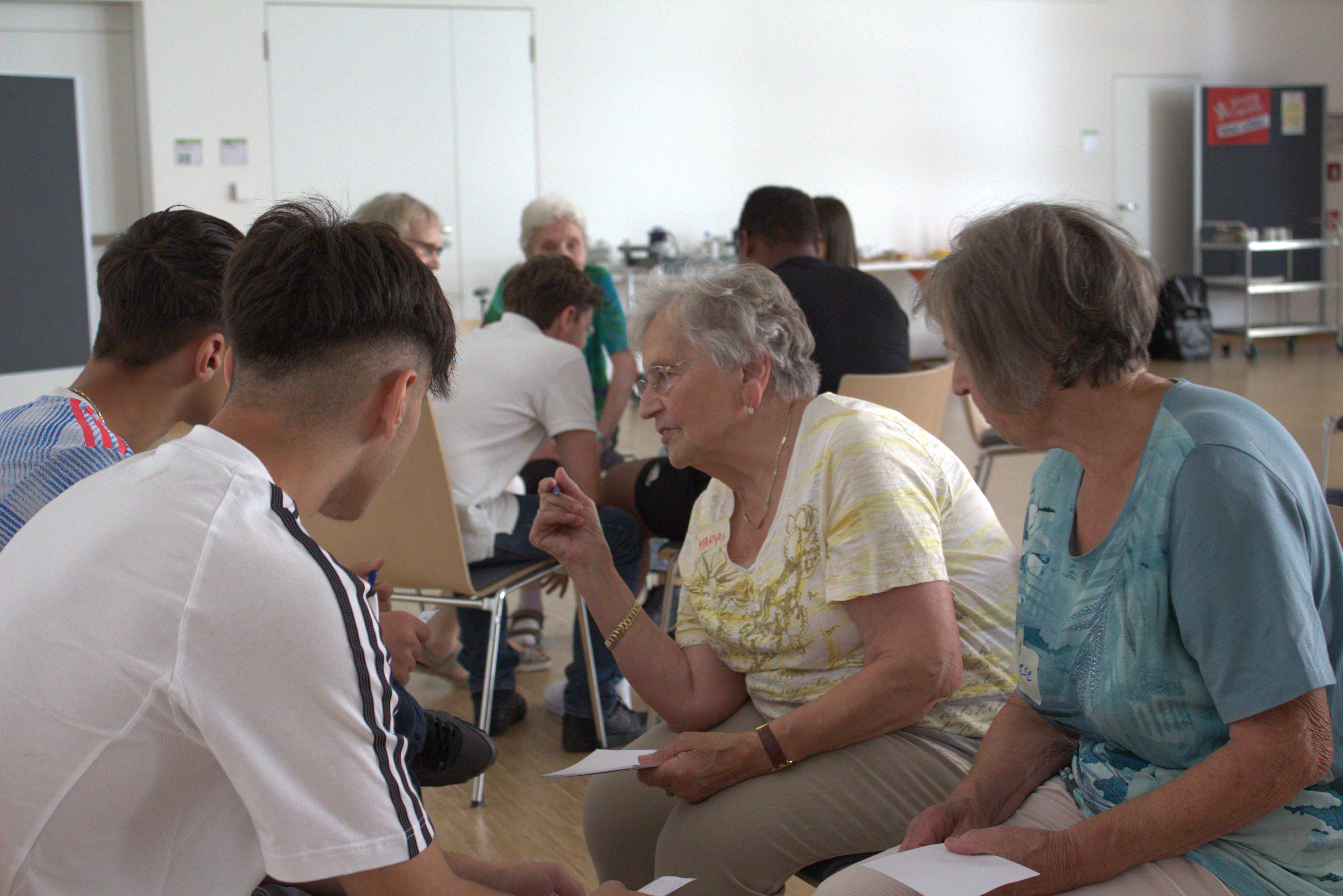Mohammad
“Germany is my home,” says Mohammed Yamin Vand with a smile that reflects his gratitude. The 35-year-old has been living in Würzburg since 2021, and even though he does not yet have German citizenship, he has found a new home for himself and his son in Würzburg.
Mohammad works as a school assistant, helping children who struggle with language and communication, and enjoys guiding his seven-year-old son through the world of education. His pride in the boy is unmistakable, and it is clear that he would do anything for his son's well-being.
Mohammad was shaped by the history of his Iranian hometown of Ahvaz, whose noisy markets and lively streets accompanied him throughout his childhood. In Germany, he appreciates the peace and cleanliness of Würzburg. Here he has found a place where he can flourish. He hopes to raise his son in a safe and stable environment.
In conversation, he reveals that he doesn't really have much of a connection to his religion. His first name, “Mohammad”, may be the epitome of Islam for many, but for him it is just a relic of his origins. “I don't have a religion, but my son is Catholic,” he explains soberly. Mohammad is aware of how names are often associated with religious and cultural expectations from the outside. He favors the freedom to find his own way.
It is obvious that Mohammad's greatest concern and greatest joy lie in his son. Christian, seven years old, is the center of his life. “I hope that he will be healthy and happy,” says Mohammed, “and that he will later have the freedom to make his own decisions.”
The global political situation, especially the uncertain developments in Iran, weigh heavily on Mohammad. “There are so many wars, and you never know what will happen tomorrow,” he says thoughtfully. He feels safe in Germany, and that is the most important thing for him. “I hope that Germany stays the way it is,” he says. Peace and security are the values he wants for himself and for his son.
In society, he would like to see more respect and mutual support. “Everyone should help each other,” he says. It is an attitude that he also lives by in his everyday life. His willingness to help knows no bounds – regardless of a person's origin, Mohammad is always ready to lend a hand. He talks about his late stepfather, who was like a father to him in Germany, and about the friendship he has with many people from different cultural backgrounds.
And what does Mohammed like to cook most? A mixture of German and Iranian dishes. He likes Sauerkraut with Bratwurst just as much as the dish Ghormeh Sabzi from his homeland – a hearty rice dish with spinach and meat that was prepared at family celebrations and still has a special place in his heart.
Mohammad's story shows us that home is more than just a place. It is the connection between past and present. For him, it is the place where he can build a secure future for himself and his son. Würzburg is his home now, even though his roots and memories of Iran will always be with him.
Das Projekt
in aller Kürze
Jeder Mensch - egal wie alt, egal woher - will irgendwann endlich ankommen. Wir zeigen 1.000 Menschen aus Würzburg, jeden mit seiner eigenen Geschichte.
Über diese Geschichten, Kunst, Diskussionen und kreative Formate laden wir alle ein, miteinander ins Gespräch zu kommen, gemeinsame Werte zu entdecken und sie im besten Fall gemeinschaftlich umzusetzen.
Dass Diversität im eigenen Umfeld als Chance begriffen werden kann, will das Projekt ebenso erfahrbar machen, wie das Glücksgefühl, das sich einstellt, wenn man selbst etwas verändert.
